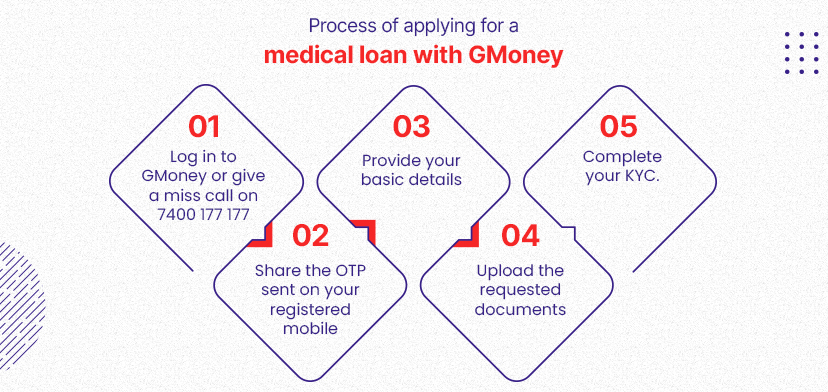Home » Preparing for Hernia Surgery in Bengaluru: Your Ultimate Checklist

When preparing for hernia surgery, it is crucial to understand what to expect before, during, and after the procedure. This includes consulting with your doctor to ensure a successful and safe surgery. Your doctor can offer guidance on the different types of hernia surgery, potential complications during the operation, risks, aftercare, and necessary preparations.
You will be provided with specific instructions on how to prepare for your hernia surgery. This is to minimize risks and improve the chances of a positive outcome.

Overview
Hernias happen when an organ or tissue sticks out through a weak spot in the muscle or connective tissue. They can show up in different parts of the body, but hernias are often found in the abdominal wall, where they can make organs like the intestines bulge out.
The most common types of hernias are inguinal, umbilical, and incisional hernias, which usually happen in the groin, belly button, or the place where you had surgery before.
If you know about how hernias work, you can take steps to stop them from happening or get medical help right away when you need it.
There are several types of hernia surgery, including
Choosing the right surgery
Hernia surgery can be a daunting decision with many factors to consider. Location and type of hernia, patient health status and personal preferences must all be taken into account. The standard procedure for hernia repair is open surgery, which involves creating a sizable incision.
Laparoscopic hernia surgery is a minimally invasive option that uses small incisions and specialised tools to treat the hernia. This method results in fewer scars and a quicker recovery time. Laparoscopic surgery can be performed with the assistance of a robotic device, known as “robotic surgery,” which allows for precise manipulation of surgical instruments.
According to Dr Gunjan Dodwani surgery is the only cure for hernia and is completely curable. Watch this video to know more.
Hernia surgery generally falls into one of two categories: open surgery or laparoscopic surgery.
Open surgery is when the surgeon makes a large incision to reach the hernia and then uses stitches or a surgical mesh to repair it.
Laparoscopic surgery is less invasive, only requiring a few small incisions in the abdomen. Specialised tools are then used.
The choice between open surgery and laparoscopic surgery depends on the size and type of the hernia. Consulting with a doctor is crucial to determine which option is best for each patient.

Pre-surgery appointment: Before your hernia surgery, you will have a pre-operative appointment with your surgeon. During this consultation, your surgeon will review your medical history, conduct a physical examination, and provide you with a detailed explanation of the surgical procedure. Additionally, they will discuss the potential benefits and risks of the surgery and address any questions or concerns you may have.
Pre-surgery tests: The surgeon will require several examinations from you prior to the surgery, such as an ultrasound, blood test, urine test, chest x-ray, MRI, and ECG. These tests will help them determine your overall health and if you are fit for the operation.
Pre-surgery diet: Before your surgery, your doctor will likely give you specific dietary guidelines to help you recover quickly and avoid complications. This may include avoiding certain foods and beverages or limiting your intake of certain nutrients. By following these guidelines, you can help ensure a successful surgery and a speedy recovery.
Once the anaesthesia has taken effect, the surgeon will make the necessary incisions and repair the hernia. This may entail reinforcing the area with sutures or mesh material. Sutures or staples will be used to close the incisions. The duration of the surgery usually lasts between two to three hours, depending on the type of procedure.
Following the surgery, the patient will be moved to the recovery room and closely monitored. Pain relief medication may be administered to alleviate any discomfort. The patient will be released once they have recuperated sufficiently to return home.
After the Procedure
– Recovery at home
– Follow-up care
– Monitoring the complications
If you put off having hernia surgery, you may wind up facing severe complications. Untreated hernias can lead to strangulation, where the tissue becomes entrapped and its blood supply is cut off. Strangulation can cause unbearable pain, nausea, and vomiting. If it’s neglected, strangulation can be fatal, causing intestinal obstruction, repeated hernias, and chronic pain. Therefore, it’s crucial to undergo hernia surgery promptly.
Delaying surgery also increases the likelihood of infection. If the hernia enlarges too much, the tissue may become infected, resulting in issues such as sepsis, a severe and potentially lethal illness.
The cost of hernia surgery can vary significantly depending on factors such as the type of surgery, the surgeon’s expertise, and the hospital where the procedure is performed. The cost of hernia surgery in Bengaluru can range from Rs. 70,000 to Rs. 90,000. Therefore, it is important to have a detailed discussion with your surgeon before finalizing a treatment plan.
To help you compare the cost of hernia surgery across different cities in India, we have compiled the following table of prices for the procedure.
| City | Cost |
| New Delhi | Rs. 70,000 to Rs. 90,000 |
| Kolkata | Rs. 25,000 to Rs. 1,20,000 |
| Chennai | Rs. 50,000 to Rs. 2,70,000 |
| Bengaluru | Rs. 70,000 to Rs. 90,000 |
| Pune | Rs. 70,000 to Rs. 80,000 |
At GMoney, we understand that medical procedures can be costly and often come unexpectedly. That’s why we offer an interest-free medical loan for individuals who require hernia surgery and prefer to pay for the treatment in instalments. The loan has a fast approval process and no additional charges. GMoney’s no-cost EMI loan for hernia surgery enables patients to handle their medical expenses more easily without incurring substantial debt.

1. What are the signs and symptoms of a hernia?
A bulge or lump in the affected area, pain or discomfort while lifting or straining, and a sense of weight or heaviness in the affected area are all common signs of a hernia.
2. What is the cause of a hernia?
Hernias are typically caused by increased pressure in the abdomen or groin, which can be caused by bowel straining, heavy lifting, pregnancy, or obesity.
3. How is a hernia diagnosed?
A hernia is often diagnosed via physical examination and imaging testing such as an ultrasound or CT scan.
4. What are the risks of a hernia?
The risks of having a hernia include pain and discomfort, infection, and intestine obstruction. In rare cases, hernias can cause life-threatening complications such as strangulation or incarceration of the intestine.
5. How long does it take to recover from hernia surgery?
The amount of time it takes to recover from hernia surgery depends on the type of hernia and the patient’s overall condition. Hernia surgery might take anywhere from 2-4 weeks to fully recover.
6. Am I qualified for GMoney’s no-cost EMI?
Any individual who is a resident of India and is between the ages of 21 and 58 is eligible for GMoney’s no-cost EMI.
7. Are there any processing fees for GMoney’s no-cost EMI?
No, GMoney does not charge processing fees. You can apply for the loan online with no charges or penalties.
8. How long does GMoney’s no-cost EMI last?
GMoney has a flexible payment schedule. You can choose a loan length ranging from 3 to 18 months based on your ability to pay.
9. Can children have hernias?
It’s not at all rare. Umbilical hernias at birth are, in fact, quite common. Most will go away on their own. Inguinal hernias in newborns and infants are frequently seen. Those don’t go away. Happily, the repair of an infant hernia is quite simple compared to those in adults.
10. What is minimally invasive hernia repair?
Laparoscopic, or minimally invasive, procedures use multiple small incisions no more than 1 centimetre in length to access the hernia. The abdomen is then inflated with carbon dioxide to provide room for the surgeon to work, and the hernia is repaired with a small, flexible device called a laparoscope.
11. Can hernias cause death?
Yes, in some cases. A strangulated hernia can occur when the bowel becomes trapped in the hernia, cutting off the blood supply to the affected tissue. If the trapped tissue dies and intestinal contents leak into the abdominal cavity, resulting in peritonitis, it can be fatal unless it is treated quickly with surgery and antibiotics.
Hernia surgery is a significant decision. Therefore, it is essential to discuss potential risks and complications with your doctor before making a decision. It is also crucial to have a clear understanding of the treatment’s cost before undergoing surgery. GMoney’s medical loan can assist you in managing the expenses of the surgery and allow you to focus on your recovery.
Disclaimer: THIS WEBSITE DOES NOT PROVIDE MEDICAL ADVICE.
Follow us
Reach us
Mumbai HO
GMoney Pvt. Ltd.
315, 215 Atrium,
Next to Courtyard by Marriott,,
A.K. Road, Andheri East,
Mumbai - 400093
Ph : +91 86570 00105, +91 72089 60444
Quick Links
Bengaluru
GMoney Technologies Pvt. Ltd.
Oyo Work Spaces, Umiya Emporium,
Opposite Forum Mall, Hosur Rd,
Koramangala, Bengaluru,
Karnataka 560029
Ph : +91 89717 34815
Delhi
GMoney Technologies Pvt. Ltd.
Berry Co Works, 1E/3,
Jhandewalan extension,
Next to jhandewalan metro station
gate no. 2 Barakhambha Road,
New Delhi, Delhi 110001
Ph : +91 97116 26832
Pune
GMoney Technologies Pvt. Ltd.
91 Spring Board, Sky Loft,
Creaticity Mall, Off, Airport Rd,
opposite Golf Course, Shastrinagar,
Yerawada, Pune,
Maharashtra 411006
Ph : +91 84250 28758
Chandigarh
GMoney Technologies Pvt. Ltd.
SCO no. 292,
First Floor, Sector 35D,
Chandigarh
Ph : +91 84279 82012
Jaipur
GMoney Pvt. Ltd.
CODESKK Civil Tower,121 122,
Pandit TN Mishra Marg,
Santhosh Nagar, Nirman Nagar,
Jaipur – 302019
Ahmedabad
GMoney Pvt. Ltd.
22nd Floor, B Block,
Westgate By True Value,
Nr. YMCA Club, SG Highway,
Ahmedabad – 380051
Hyderabad
GMoney Pvt. Ltd.
Dwaraka Pride,
Plot no. 4/1, Survey No. 64,
Huda Techno Enclave, Madhapur,
Hyderabad (Telangana) – 500081
Chennai
GMoney Pvt. Ltd.
DBS Business Center, 31A,
Cathedral Garden Rd, Badrikari, Tirumurthy Nagar, Nungambakkam, Chennai, Tamil
Nadu – 600 034
Mumbai HO
GMoney Pvt. Ltd.
315, 215 Atrium,
Next to Courtyard by Marriott,,
A.K. Road, Andheri East,
Mumbai - 400093
Ph : +91 86570 00105, +91 72089 60444
Bengaluru
GMoney Pvt. Ltd.
3rd floor, Ranka Junction,
AH45, Krishna Reddy Industrial Estate,
Dooravani Nagar,
Bengaluru Karnataka - 560016
Ph : +91 72089 60444
Pune
GMoney Pvt. Ltd.
91 Spring Board, Sky Loft,
Creaticity Mall, Airport Rd,
Opp. Golf Course, Shastrinagar,
Yerawada, Pune,
Maharashtra - 411006
Ph : +91 72089 60444
Delhi
GMoney Pvt. Ltd.
Berry Co Works, 1E/3,
Jhandewalan extension,
Gate no. 2 Barakhambha Road,
New Delhi, Delhi - 110001
Ph :
+91 72089 60444
Chandigarh
GMoney Pvt. Ltd.
SCO No. 292,
First Floor, Sector 35D,
Chandigarh - 160022
Ph : +91 72089 60444
Hyderabad
GMoney Pvt. Ltd.
Dwaraka Pride,
Plot no. 4/1, Survey No. 64,
Huda Techno Enclave, Madhapur,
Hyderabad (Telangana) - 500081
Jaipur
GMoney Pvt. Ltd.
CODESKK Civil Tower,121 122,
Pandit TN Mishra Marg,
Santhosh Nagar, Nirman Nagar,
Jaipur - 302019
Chennai
GMoney Pvt. Ltd.
DBS Business Center, 31A,
Cathedral Garden Rd, Badrikari,
Tirumurthy Nagar,Nungambakkam, Chennai,
Tamil
Nadu - 600 034
Pune | Mumbai | New Delhi | Kolkata | Chennai | Navi Mumbai| Bengaluru | Ahmedabad | Nagpur | Hyderabad | Jaipur | Lucknow | Bhopal | Bhubaneswar | Nashik | Indore | Ghaziabad | Kanpur | Amritsar | Vasai | Noida | Gurugram | Chandigarh | Ranchi | Cuttack | Thane | Kalyan | Jalandhar | Kolhapur | Visakhapatnam | Chakan| Greater Noida | Wagholi | Raipur | Panvel | Belgaum | Mohali | Bhiwandi | Talegaon | Coimbatore | Palghar | Mumbra | Sangli | Surat | Durgapur | Ludhiana | Kochi | Agra | Ahmednagar | Ajmer | Akola | Aurangabad | Baroda | Beed | Rewari | Patiala | Vellore | Ranjangaon | Nanded | Nellore | Panipat | Panjim | Madurai | Mysore | Mangalore | Korba | Mathura | Kalaburagi | Jalgaon | Kharar | Guwahati | Kollam | Jamshedpur | Gwalior | Saswad | Solapur | Varanasi | Salem | Sambalpur | Jodhpur | Hubli | Panchkula | Faridabad | Amravati | Ayodhya | Badlapur | Dehradun | Parbhani | Ujjain | Udaipur | Tiruchirappalli | Srinagar | Shimla | Secunderabad | Ratnagiri | Pandharpur | Ananthapuram | Buldhana | Hadapsar | Baramati | Chittoor | Darjeeling | Dhule | Fatehpur | Gandhinagar | Haridwar | Gorakhpur | Jhansi | Kanchipuram | Kartarpur | Kurukshetra | Pondicherry | Prayagraj | Bharuch | Bhusawal | Bathinda | Pathankot | Nandurbar | Niphad | Kolar | Ambala | Kota | Pendurthi | Jabalpur | Palwal | Bhilai | Bhiwani | Bilaspur | Patna | Rohtak | Phagwara | Malegaon | Vijayawada | Bikaner | Chiplun | Darbhanga | Roorkee | Bhor | Rajahmundry | Margao | Alwar | Dhanbad | Bulandshahr | Aluva | Mulshi | Davanagere | Kapurthala | Anantapur | Loni | Latur | Gondia | Chhindwara | Chandrapur | Dharmapuri-TN | Faridkot | Dharwad | Daund | Chaksu | Bareilly | Kakinada | Haldwani | Doddaballapur | Dindori-MH | Bagru | Kudus | Kozhikode | Gurdaspur | Bokaro | Berhampur | Batala | Barrackpore | Ramgarh | Meerut | Bassi | Dera Bassi | Howrah | Karjat Raigarh | Thiruvananthapuram | Bheemunipatnam | Ambegoan | Allahabad | Aligarh | Alappuzha | Tirupathi | Thoppumpady | Srikakulam | Siliguri | Rourkela | Mirzapur | Gadag | Bellary | Tumkur | Sonipat | Hoshangabad | Junnar | Jalna | Hisar | Karnal | Kottayam | Muzzafarnagar | Ramnagara | Thrissur | Bahadurgarh | Balasore | Baraut | Dhar | Ernakulam | Gadhinglaj | Chikodi | Vaniyambadi | Kamothe |